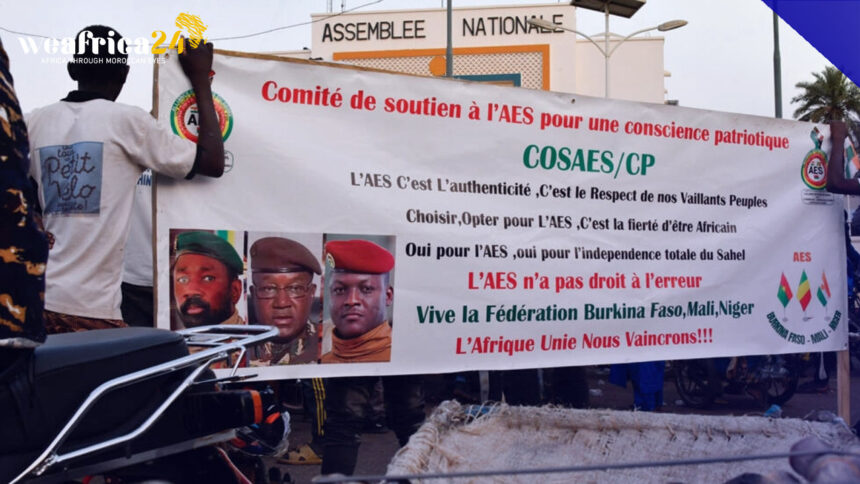In a significant geopolitical development, Mali, Niger, and Burkina Faso have officially withdrawn from the Economic Community of West African States (ECOWAS) as of Sunday, January 28. This departure is expected to catalyze a deepened collaboration within the Alliance of Sahel States (AES), an initiative initially established in September to combat jihadist groups while concurrently fostering economic and political unity among its member nations.
Originally conceived as a defense pact, the AES witnessed the three nations pooling their military resources to combat rebel and jihadist groups. However, their ambitions extended beyond mere military collaboration, evolving into a vision for a comprehensive economic and political union. This vision took a decisive step forward during a pivotal meeting held in Bamako in late November 2023.
The conclusion of the meeting solidified the expressed commitment to progress towards the establishment of a federation comprising Mali, Niger, and Burkina Faso within the framework of the AES.
The recent announcement of their departure from ECOWAS is anticipated to galvanize further cooperation among these Sahelian nations within the AES. Julien Antouly, an expert in international law, underscores the unique foundation of the AES, emphasizing its role as a collective security alliance. This implies that member states commit to responding collectively in the face of aggression or attacks against any member. Antouly suggests that the strengthened collaboration could extend beyond military matters, encompassing economic and diplomatic spheres as well.
“The AES rests on a treaty forming a collective security alliance, meaning its members commit to reacting in case of aggression or attack against any of its members. Today, we can envision a reinforcement of economic cooperation, especially a diplomatic alliance to form a real bloc and counterbalance other ECOWAS member states,” states Antouly in a phone interview with Pierre Firtion of the Africa desk.
While the charter establishing the AES has led to several high-level diplomatic meetings, details about the specific institutions to be implemented remain undisclosed. Antouly speculates that the intricacies of military cooperation may take time to materialize and that certain aspects of collaboration may not be publicly disclosed.
The departure from ECOWAS marks a pivotal moment for the Sahelian nations as they pivot towards the AES, a strategic move that could reshape regional dynamics and potentially create a formidable bloc within the West African landscape. As the diplomatic landscape evolves, the international community will keenly watch the unfolding developments and the potential implications for security, economic growth, and political stability in the Sahel region.







